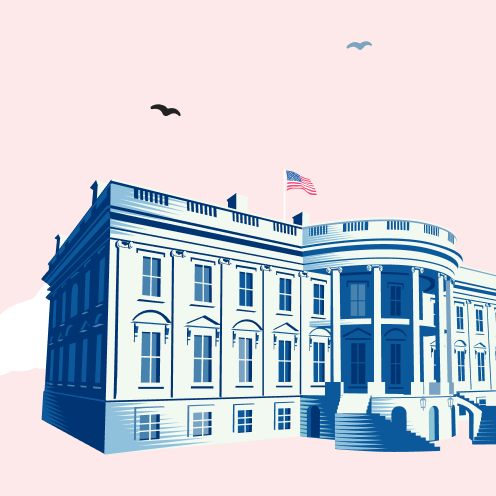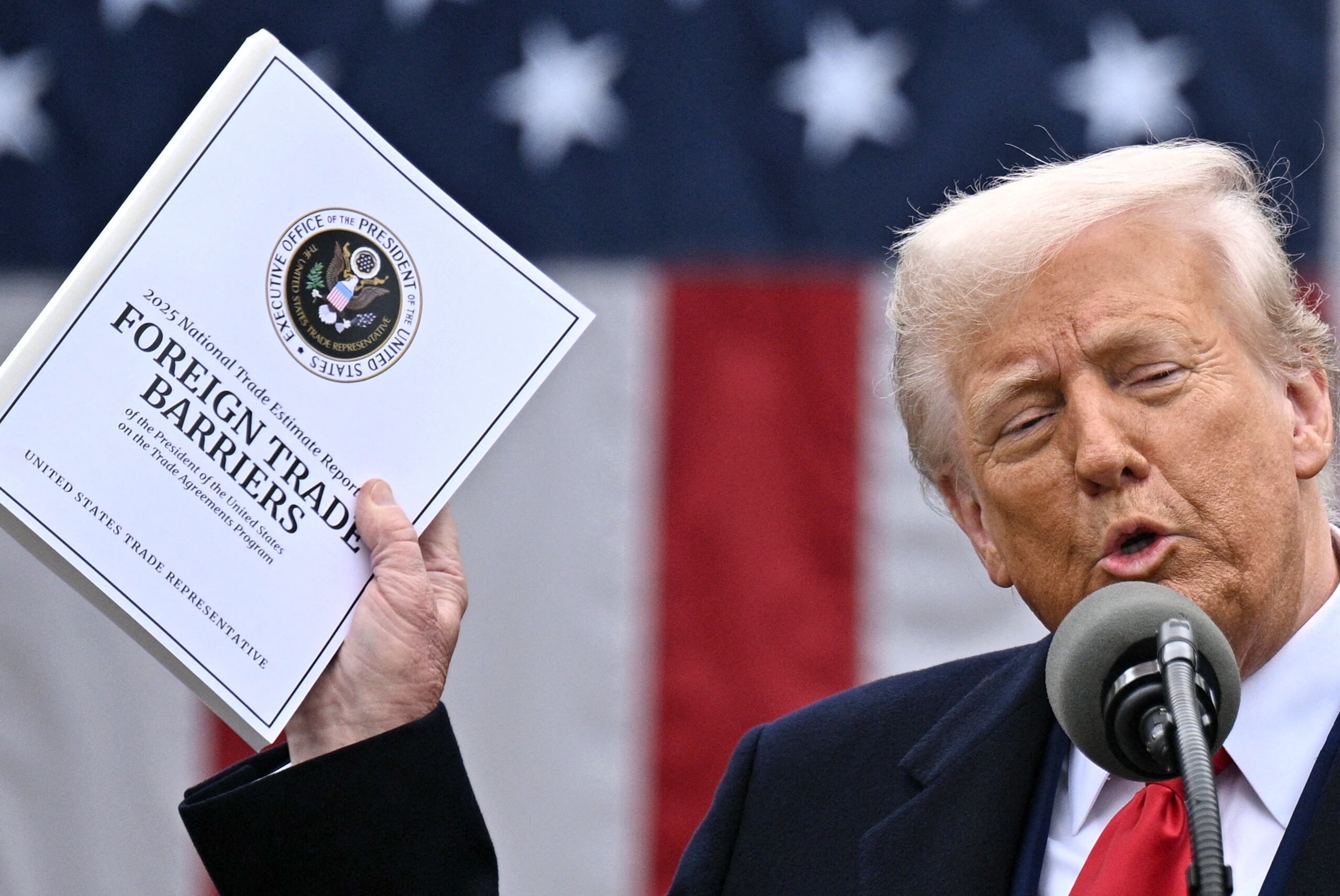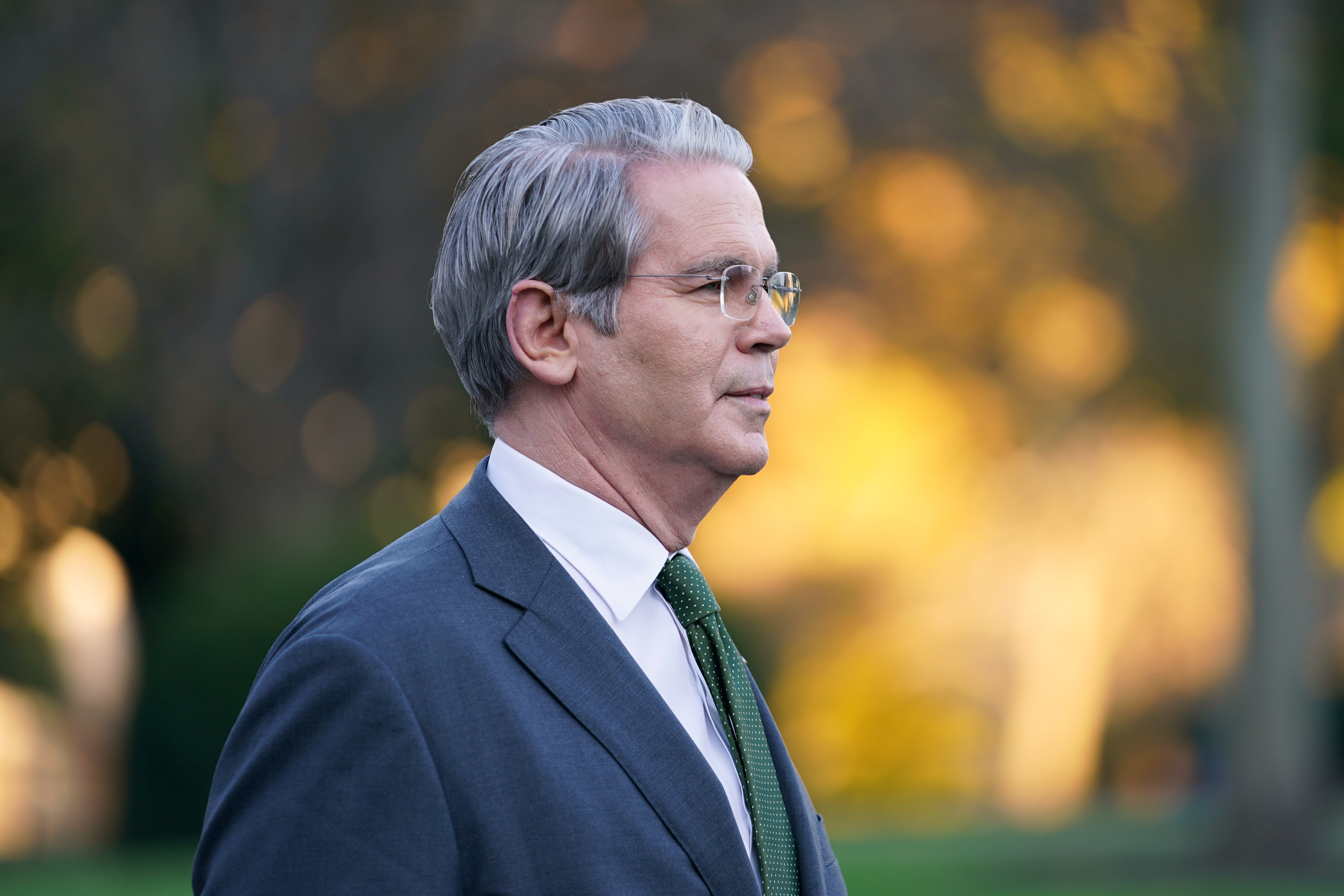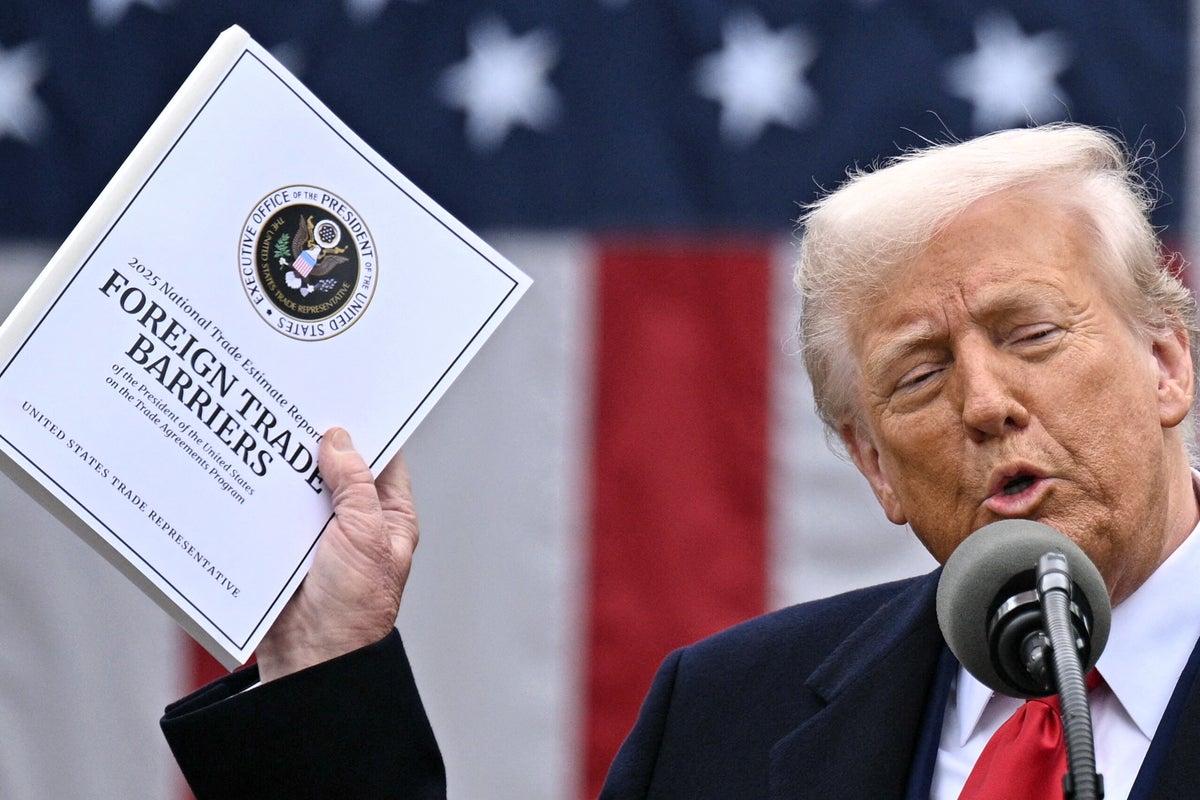- News
- World
- Americas
- US politics
Congressional Budget Office downgrades forecast on president’s levies on imported goods, casting fresh doubt on his pledge to send U.S. citizens a rebate
Joe SommerladFriday 21 November 2025 17:06 GMTComments
 CloseTreasury Secretary Scott Bessent says there are other ways for Donald Trump to impose tariffs if Supreme Court rejects administration's arguments
CloseTreasury Secretary Scott Bessent says there are other ways for Donald Trump to impose tariffs if Supreme Court rejects administration's arguments
Sign up for the daily Inside Washington email for exclusive US coverage and analysis sent to your inbox
Get our free Inside Washington email
Get our free Inside Washington email
 Email*SIGN UP
Email*SIGN UPI would like to be emailed about offers, events and updates from The Independent. Read our Privacy notice
President Donald Trump’s aggressive tariffs program will cut the national deficit by $3 trillion over the next decade, $1 trillion less than expected, according to a new estimate from the Congressional Budget Office.
The tariffs imposed in the first year of Trump’s second term in the White House would cut primary U.S. deficits by $2.5 trillion if they are left in place as they are until 2035, by the CBO’s reckoning.
Such a reduction would also mean a massive decrease in borrowing, saving the country a further $500 billion in interest and bringing the total to $3 trillion, which is still well short of the $4 trillion the office forecast in August and would make only a relatively small dent in the total national debt, which currently stands at $38 trillion.
 open image in galleryPresident Donald Trump delivers remarks on his reciprocal tariffs policy in the White House Rose Garden on April 2 this year, which he branded ‘Liberation Day’ (AFP/Getty)
open image in galleryPresident Donald Trump delivers remarks on his reciprocal tariffs policy in the White House Rose Garden on April 2 this year, which he branded ‘Liberation Day’ (AFP/Getty)White House spokesman Kush Desai reacted to the downgrade in expectations by saying, “The fact of the matter is that President Trump is set to raise trillions in revenue for the federal government with tariffs – whose costs will ultimately be paid by the foreign exporters who are reliant on access to the American economy, the world’s biggest and best consumer market.”
But the revised forecast threatens to complicate the president’s plan to send out tariff dividend checks worth “at least” $2,000 to American citizens, even as the U.S. Supreme Court is still weighing up whether the tariffs are even legal in the first place.
Trump said in a Truth Social post on November 10 that only “FOOLS” opposed his tariffs and declared: “We are now the Richest, Most Respected Country In the World, With Almost No Inflation, and A Record Stock Market Price.
“We are taking in Trillions of Dollars and will soon begin paying down our ENORMOUS DEBT, $37 Trillion. Record Investment in the USA, plants and factories going up all over the place. A dividend of at least $2000 a person (not including high income people!) will be paid to everyone.”
Treasury Secretary Scott Bessent was not much clearer about the practicalities during an interview with ABC News’s This Week around the same time, saying only that the “$2,000 dividend could come in lots of forms, lots of ways.”
 open image in galleryTreasury Secretary Scott Bessent has been vague about how and when the president’s $2,000 tariffs rebate might appear (AP)
open image in galleryTreasury Secretary Scott Bessent has been vague about how and when the president’s $2,000 tariffs rebate might appear (AP)“It could be just the tax decreases that we are seeing on the president’s agenda,” he continued. “You know, no tax on tips, no tax on overtime, no tax on Social Security. Deductibility of auto loans.”
On Monday, the president blurred the timeline as to when the checks might ultimately be delivered, claiming that he would “probably” send them out “somewhere prior to... the middle of next year,” or, perhaps, “a little bit later than that.”
The lack of clarity about the policy has led betting markets to assign extremely low odds to it ever coming to pass, with the websites Kalshi and Polymarket putting the prospect at just 2 percent and 1 percent, respectively, this week.
The idea of sending out the checks is also unpopular with Republican deficit hawks in the Senate, not least Majority Leader John Thune, who has said he would rather see the revenue from the tariffs be used to pay down the debt, arguing that would be the more effective means of tackling inflation than simply handing consumers bonus cash.
More about
Donald Trumptariffsnational debtScott BessentJohn ThuneJoin our commenting forum
Join thought-provoking conversations, follow other Independent readers and see their replies
Comments



